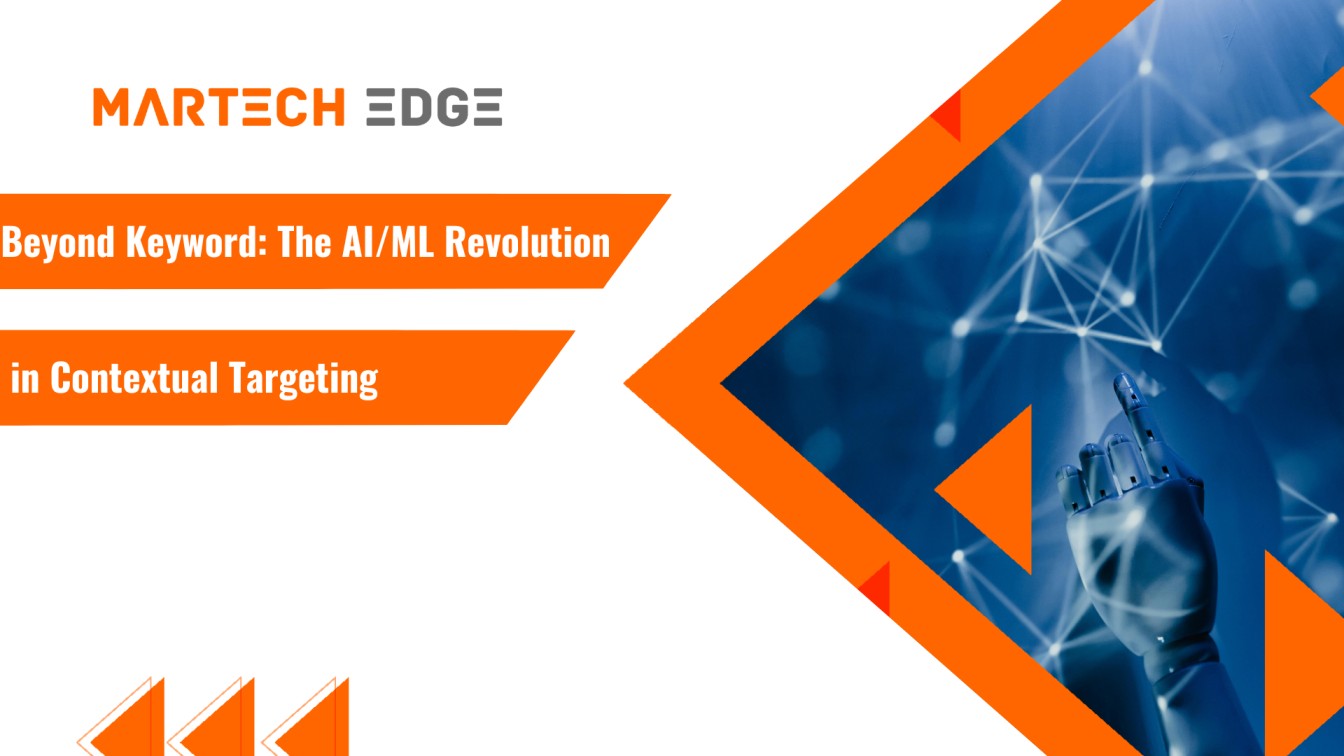
Beyond Keywords: The AI/ML Revolution in Contextual Targeting
In the era of information overload, the reliance on traditional keyword-based targeting has given way to a more nuanced approach, where AI and ML algorithms discern intricate patterns and contextual cues to deliver advertisements with unprecedented precision and relevance.
The integration of AI/ML in contextual targeting goes beyond mere keywords, ushering in a new era of advertising. The collection of insights navigates the realm where algorithms learn, adapt, and evolve to comprehend the intricacies of user behavior, preferences, and context.
Rachel Gantz, Managing Director, Proximic by Comscore has predicted
- “2024 will bring reliance on contextual audiences that leverage AI to bridge the benefits of holistic audience behaviors and align those behaviors with contextual attributes, resulting in the ability to drive targeted reach in a privacy-first manner free of any user identifiers”.
- “Adoption of these AI-powered contextual audiences is poised to really take off this year as we witness the demise of remaining third-party cookies and advertisers and publishers are forced to adopt new ways of reaching audiences”.
AI and ML algorithms empower advertisers to transcend the limitations of conventional targeting methods, ushering a future where advertising resonates with audiences on a level deeper than ever before.
“We use advanced technologies and data analytics to help marketers reach specific audiences with their advertising campaigns wherever they buy their media. We collect billions of pages a month and analyze large amounts of data to create detailed audience segments. These segments are then used to target advertising to specific groups of users based on their demographics, interests, and behaviors” said Jeff Ragovin, CEO of Fyllo.
Conclusion
The resonance of the revolution echoes through the corridors of digital advertising strategy, with the integration of AI/ML becoming a cornerstone for precision targeting in the years to come. The marriage of intelligent algorithms with contextual understanding has elevated the efficacy of advertising campaigns and also redefined the dialogue between brands and consumers.
“A key theme this year will focus on how companies integrate advanced AI into their product offerings. In 2023, AI’s early adopters had a competitive advantage as they began to utilize LLMs to vastly improve the ability of contextual tools to understand the subtlety and nuance of web pages — enabling things like avoiding misinformation. In 2024, AI adopters will extend their lead through the use of multi-modal models. These models will allow contextual tools to understand page layout and placement, enabling attention to be better maximized and content like made-for-advertising sites to be better avoided” said Aaron Andalman CSO and co-founder of Cognitiv.
It is clear that the future of contextual targeting lies in the hands of AI and ML, opening new horizons where advertising is not just served but intimately understood. It is the catalyst for a refined, adaptive, and personalized approach, aligning seamlessly with the dynamic nuances of individual consumer journeys.

artificial intelligence marketing
Join our newsletter!
Enter your email to receive our newsletter.




